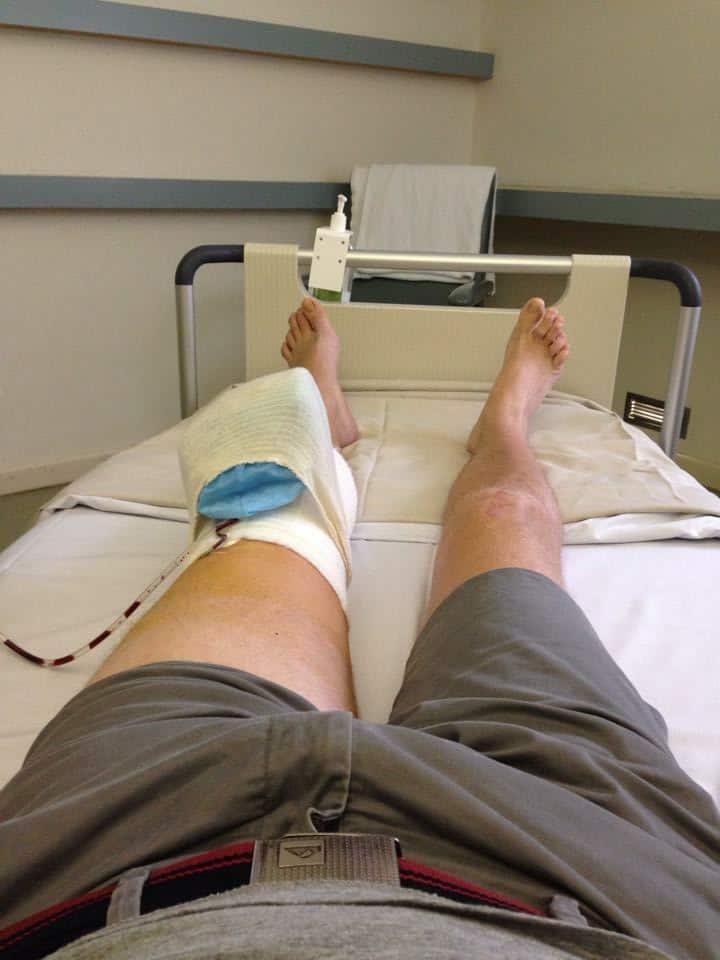By age 31, Rhys Donnan had undergone 11 operations on his knees.
He started having problems with his knees as a junior footballer at 13, and had his first operation at 18. From there, he underwent many more procedures – and revisions of those procedures – at one point having operations every 18 months.
“To be honest, I’ve become fairly blasé about [surgery] in the end,” he tells Jenny Brockie on this week’s episode of Insight. “I’d had so many … it just seemed the natural course of action.”
About a million orthopaedic surgeries are done each year in Australia. Many of these are joint replacements or spinal surgeries to treat osteoarthritis. Hip and knee replacements alone cost the health system more than any other hospital procedure – over $2 billion a year.

And some of these surgeries are on the rise. A Victorian study found that between 1994 to 2014, the number of hip replacements done went up 175 per cent, while knee replacements went up 285 per cent.
But the evidence for many commonly performed operations is far from clear cut.
Research suggests that about half of orthopaedic procedures have no scientific evidence to prove they work better than non-surgical treatments, and another quarter are no more effective than alternatives such as physiotherapy, exercise and weight loss.
Orthopaedic surgeon, Professor Ian Harris, says that some operations, such as spinal fusions, are more controversial.
“The best evidence we have is that it is not better than a structured non-operative alternative, such as physiotherapy or cognitive behavioural therapy,” he says.
After suffering debilitating back pain for several years, Simone Smith felt surgery was her only option.
“I had done everything, imaging, traction, physios, chiros, osteos … I can remember having to sit in the bottom of the shower because I couldn’t stand,” she tells Jenny. She says her surgery worked well, and helped ease her pain.
Jessica King also underwent spinal surgery. She says she wasn’t given any other options after hurting her lower back while pregnant.
“I feel like it was probably the most drastic sort of step, and I went there too soon,” she says. Jess still has ongoing nerve pain and numbness.
This week's, Insight cuts through the confusion to ask how patients, surgeons and other specialists can make a joint decision about when to operate – or not. Joint Operation, Tuesday, 8.30pm, SBS.
Insight is Australia's leading forum for debate and powerful first-person stories offering a unique perspective on the way we live. Read more about Insight
Have a story or comment? Contact Us


